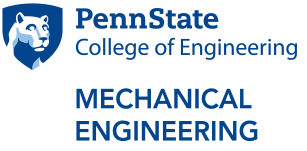Adaptive Separation Control of a Laminar Boundary Layer using Online Dynamic Mode Decomposition
ME 590 Seminar Speaker Louis Cattafesta
Bio:
Louis N. Cattafesta III is the John G. and Jane E. Olin Endowed Department Chair in Mechanical, Materials, and Aerospace Engineering in the Armour College of Engineering at the Illinois Institute of Technology. Previously, he was a University Eminent Scholar Endowed Professor in the Department of Mechanical Engineering in the FAMU/FSU College of Engineering until 2022. He received a BS degree in Mechanical Engineering in 1986 from Penn State University, a MS degree in Aeronautics from MIT in 1988 via an AFRAPT Fellowship, and a Ph.D. degree in Mechanical Engineering in 1992 from Penn State University. In 1992, he joined High Technology Corporation as a Research Scientist at NASA Langley Research Center. His research at NASA Langley focused on supersonic laminar flow control and pressure- and temperature-sensitive paint measurement techniques, and in 1996 he was awarded the 1996 NASA Team Excellence Award for his contributions. At that time, he became involved in active control of flow-induced cavity oscillations, which provoked his current research interests in active flow control and aeroacoustics.
He joined the University of Florida as an Assistant Professor in 1999 and was promoted to an Associate and Full Professor in 2003 and 2008, respectively, before joining Florida State University in 2012. Funding for his research has been provided by grants from NASA, AFOSR, ONR, NSF, Boeing, Lockheed-Martin, General Electric, Gulfstream, among others. Dr. Cattafesta has co-authored 4 AIAA best conference paper awards in 2001, 2002, and two in 2004. He is the author or co-author of 7 US Patents, 7 book chapters, and more than 100 archival journal publications. Dr. Cattafesta is a Fellow of AIAA, ASME, APS, and the Royal Aeronautical Society. He is also a member of ASA. He is currently an Associate Editor for Experiments in Fluids.
Additional Information:
Abstract:
Adaptive control of flow separation based on online dynamic mode decomposition (DMD) is formulated and implemented on a canonical separated laminar boundary layer via a pulsemodulated zero-net mass-flux (ZNMF) jet actuator located just upstream of separation. Using a linear array of thirteen flush-mounted microphones, dynamical characteristics of the separated flow subjected to forcing are extracted by online DMD. This method provides updates of the modal characteristics of the separated flow while forcing is applied at a rate commensurate with the characteristic time scales of the flow. In particular, online DMD provides a time-varying linear estimate of the nonlinear evolution of the controlled flow without any prior knowledge. Using this adaptive model, feedback control is then implemented in which the Linear Quadratic Regulator gains are computed recursively. This physics-based, autonomous approach results in more efficient flow reattachment, requiring approximately 30% less actuator effort compared with commensurate open-loop control. Four Reynolds numbers are tested to assess robustness, Rec = 0.9x105, 1x105, 1.1x105, and 1.25x105. All controlled cases exhibit a significant reduction in mean separation bubble height, requiring approximately ten characteristic time periods to establish control.
Event Contact: Mechanical Engineering


